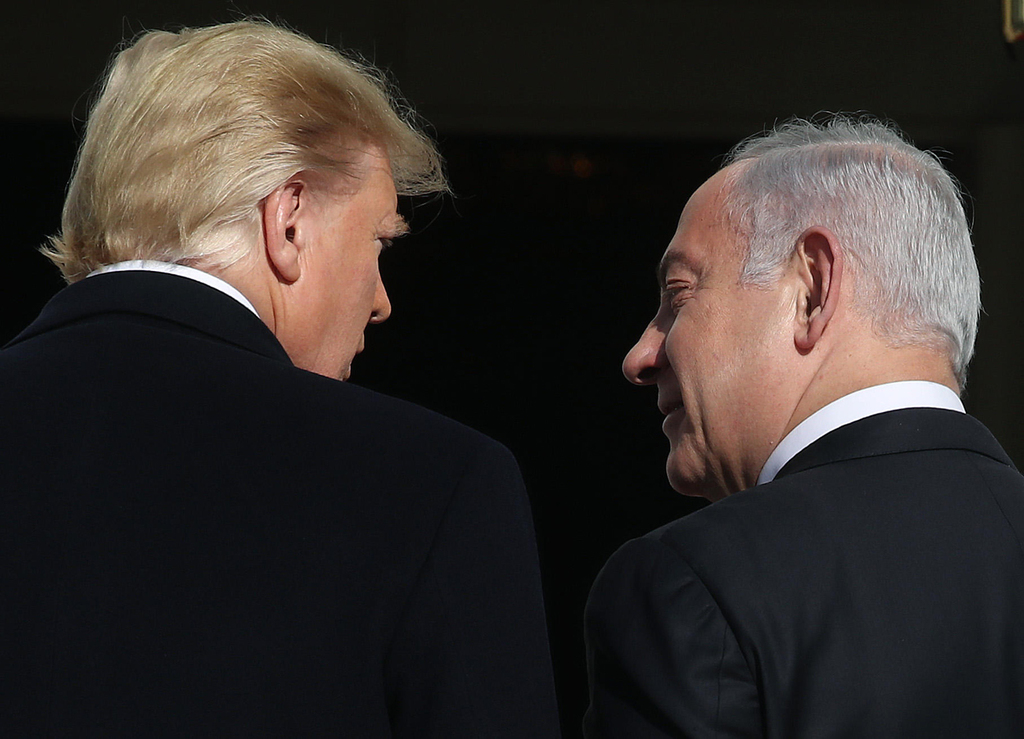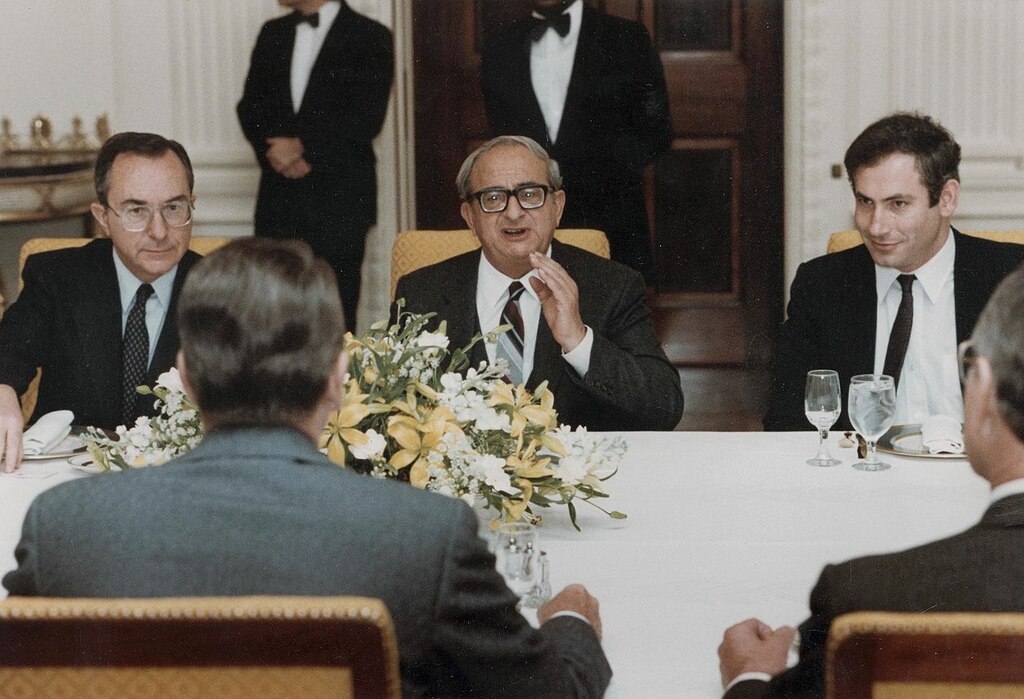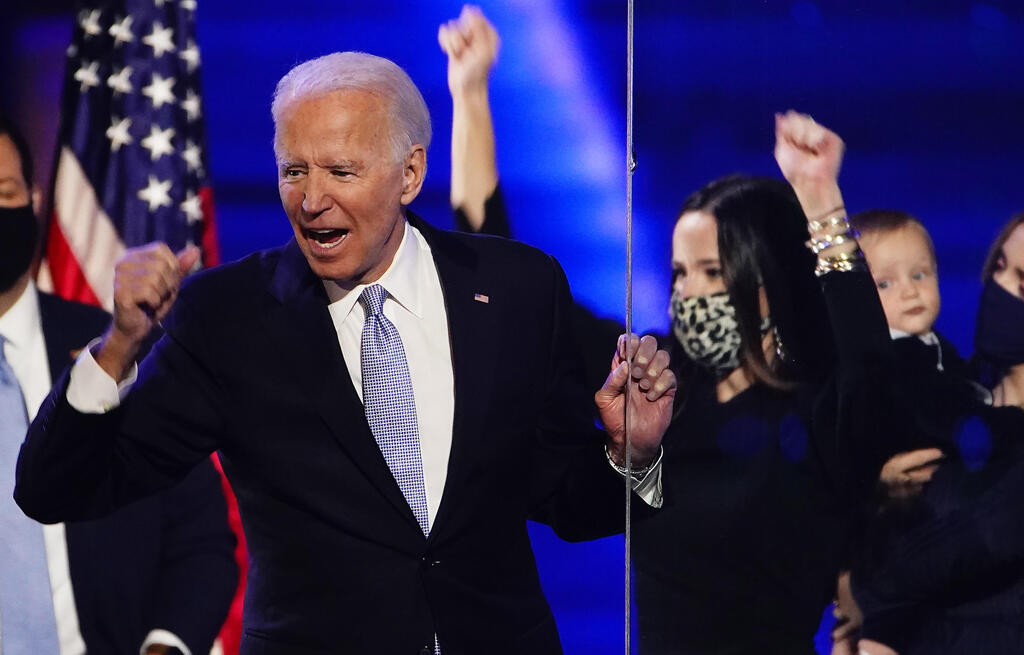Getting your Trinity Audio player ready...
Before the 2013 elections in Israel, the Likud party released a very unusual campaign video of the eccentric billionaire and reality TV host Donald Trump endorsing Prime Minister Benjamin Netanyahu.
"There is nobody like him, he's a winner, he's highly respected, he's highly thought of by all," the future U.S. president said in the video. "So, vote for Benjamin. Terrific guy, terrific leader and great for Israel."
4 View gallery


Outgoing-U.S. President Donald Trump and Prime Minister Benjamin Netanyahu
(Photo: Gettyimages)
Trump had later said that he received the text straight from the Prime Minister's Office. But why did Netanyahu think that an endorsement by an American celebrity would help sway voters in Israel? Could it be that already then he foresaw Trump's escapades in the American political scene? When Netanyahu looks at Trump, he sees his political and media reflection.
Both men's background could not be more different. Trump was raised by a rich building contractor with his whole world revolving around real estate and the future wealth of his children. His spiritual world was nearly non-existent, having no time for any philosophy, politics or science.
Netanyahu, on the other hand, was the son of a history professor whose world view was completely anchored in ideology. In his book, "A Place Among the Nations," Netanyahu presented his historical and political manifesto based on his wide critique of the Zionist movement's relations with the world in general and the Arab community in particular.
Nevertheless, these two men who were raised so differently, utilize their media skills in a similar way.
Trump realized very early that media exposure through newspapers and especially television would help his businesses. His demeanor and ability to talk to the media was something to behold.
Lee Atwater, a senior adviser to former U.S. President George H.W. Bush, asked Trump if he was willing to become the vice-presidential candidate for the 1992 election campaign.
Trump agreed, but Atwater never got back to him.
Netanyahu started his way as a sales manager for a furniture retailer, later becoming a consul at the Israeli embassy in Washington and envoy to the UN.
He slowly garnered a lot of media attention in Israel, with the now-defunct newspaper "Hadashot" projecting the 1996 elections would be a battle between him and Ehud Barak.
4 View gallery


Netanyahu (right) at a dinner at the White House as Israel's consul in Washington, seated with President Yitzhak Navon (center) and Israeli Ambassador to the United States Moshe Arens (left) in 1983
Both Netanyahu and Trump's election campaigns share a central motive – us versus them, the "bad people."
This tactic has already become the main weapon in the arsenal of right-wing leaders wanting to stir up the public's emotions.
Attacking another person's ideas is for overthinkers while labeling them as "dangerous people" is far more effective and can cause more pain.
Trump utilized the Latin American "migrant problem," calling them people coming into the country to steal jobs from hardworking Americans.
He demonized them, calling them "drug dealers, criminals and rapists," painting this picture of an endless convoy of migrants coming to the border, set to wreak havoc in the U.S.
4 View gallery


Supporters of outgoing-U.S. President Donald Trump stage a rally outside the Utah State Capitol
(Photo: AP)
Netanyahu has pretty much made the term "left-wing" synonymous with "traitors."
Those who cooperate with Israeli Arabs endanger the nation's security and existence. "The Arabs are flocking to the polls," he said during the 2015 elections as he worked to motivate his party's electorate to go out and vote.
Truth is an afterthought at best for both these leaders. A rule of thumb in the political world is to refrain from saying things that are not factually true – not because it is immoral, but because it can be disproven.
The basic premise is that credibility is an essential character trait in a political leader. How else are we going to believe his campaign promises, if he has already been seen as untrustworthy?
But Trump and Netanyahu turned the public's lack of trust into trustworthiness.
If they are faced with a fact they do not like, they immediately label it as "fake news." There is no need to deal with truths when you can claim they are spread by liberals and leftists.
In the eyes of their voters, their words are entirely believable while the opposition is believed to be willing to say anything in order to remove their beloved leader from power.
Both are faced with legal battles that influence their political conduct.
Trump, who until recently enjoyed immunity as U.S. president, is expecting to face criminal charges once he is out of office for extortion, bribery, sexual harassment, tax fraud, and perhaps more.
Netanyahu is already on trial on charges of corruption.
They are desperately trying to remain in power, fighting the so-called "deep state," a cabal of progressives and leftists, attempting to sell their country to Iran, China, Israeli Arabs and ISIS.
Both Trump and Netanyahu have used their media superpowers to sow discord in order to boost their electoral basis.
But this has come with a price - awakening the moderate and undecided voters and motivating them to vote.
Trump managed to whip up his voter base to the point of ecstasy in his rallies, but ultimately lost the election when his opponent, now President-elect Joe Biden, managed to get people to the polls in numbers unseen in nearly a century. Their patience with him was completely depleted due to his endless wave of lies and insults.
4 View gallery


U.S. President-elect Joe Biden at his victory celebration after winning the 2020 elections
(Photo: EPA)
Despite the inherent difference between Israel and the U.S., Netanyahu could find himself on course to the same outcome.
His voter base is still with him, but the center and left-wing voters have changed tactics.
Those who usually sat in front of the TV, within the confines of their home, bemoaning the current state of affairs or romanticizing "the good old days" have reached a boiling point.
They now appear in droves in demonstrations taking place in Jerusalem, Tel Aviv and all over Israel, in numbers unseen in years.
Netanyahu's endless wave of chicanery, lying and insults has drained their patience too.

